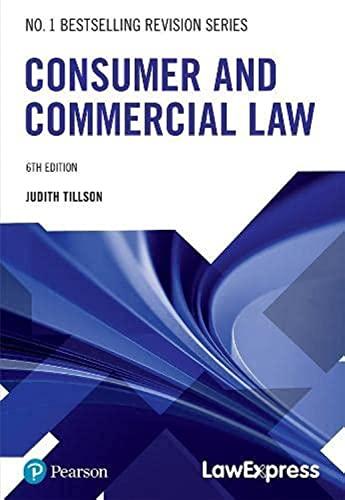Question
Scenario 2: File: Mohammad Arani File No.: 01798 Date of IRB Decision: June 4, 2020 Jurisdiction: Toronto, Ontario, Canada Memo to Paralegal from Rangila Sengupta
Scenario 2:
File: Mohammad Arani
File No.: 01798
Date of IRB Decision: June 4, 2020
Jurisdiction: Toronto, Ontario, Canada
Memo to Paralegal from Rangila Sengupta
Brief Statement of Facts:
Mr. Mohammad Arani, his wife and dependant children have retained Ms. Rangila Sengupta to appeal their case in the Federal Court.
The Applicants are M. Arani [the Principal Applicant], the Principal Applicant's wife [the Secondary Applicant], and their two adult daughters: [the Dependent Applicants].At the time of the decision, the Dependent Applicants were 20 and 19 years old, making them dependent children under theImmigration and Refugee Protection Regulations, SOR/2002-227[IPRR]. They are citizens of Indonesia.
The Principal Applicant isaformer Indonesian diplomat.He came to Canada with his wifeinlate 1999 or early 2000.Their daughters were bornin Canada in2000 and 2001; however, as the children ofaconsular officer, they did not acquire Canadian citizenship at birth.
InMarch 2013, the Principal Applicant's status was changed from an accredited diplomat toalocally-engaged employee.He received a work permit in May 2013 and his wife receivedavisitor record.Both eventually received temporary resident permits.Their daughters were issued studypermits, the last of which expiredinAugust 2017.
The Applicant eventually ceasedworkingat the Indonesian Consulate.He receivedastudypermitand completed diploma programs at Evergreen College and at Centennial College.The Principal and Secondary Applicants subsequently receivedworkpermits, which were valid until March 2020.They remaininCanadaon visitor records.
[8]Based on the evidence before the officer, the Dependent Applicants areinthe unusual situation of having lived their entire livesinCanadabut having no Canadian citizenship or other immigration statusinCanada, independent of that of their parents.The evidence before the officer suggests that they have not had studypermitssince August 2017; however, they are dependent children of their parents.On the H&C application, their statusinCanadais listed as"Foreign National."
The Applicants applied for permanent residence from withinCanadaon June 4, 2020.
The Humanitarian and Compassionate (hereinafter H&C) Decision:
The officer considered the Applicants' establishmentinCanada.The officer noted that the Applicants have spent most of their livesinCanadaand noted the Principal and Secondary Applicants' extensive employment and education experienceinCanada.The officer gave their establishmentinCanada"moderate positive consideration."The officer also gave"some positive consideration"to the Applicants' community integration.
The officer noted the Dependent Applicant's academic successinCanadaand granted their achievements positive consideration.However, the officer noted that while it was submitted that they were enrolledinpost-secondary education, the information before the officer was that they had not held studypermitssince August 2017.The officer gave"moderate negative consideration"to the Dependent Applicant's non-compliance withCanada's immigration laws.The officer further noted that there was no evidence that the Applicants were enrolledinpost-secondary studies, such as transcripts or letters of acceptance.
The officer considered the possibility of harm resulting fromapossible separation of the Applicants from each other.The officer noted,"it is not my role asadecision-maker to speculate on whether the applicants should separate or remain together."Rather, the officer was of the view that he or she must assess the hardship associated with each scenario and any mitigating factors.
The officer noted the submission that the Dependent Applicants are emotionally reliant on their parents and that, due to the Applicants' religious and cultural background, they would prefer to stay with their parents.However, the officer found there to be little explanation why the Dependent Applicants could not complete their educationinIndonesia.The officer also noted that the Primary and Secondary Applicants may be able to procureworkor studypermitsto remaininCanadauntil their children have completed their studies.
The officer found that even if the Applicants were to separate, there was insufficient evidence that the Dependent Applicants are"so reliant on their parents that they could not experience any physical separation."The officer noted that the Applicants were adults, were not inadmissible toCanada, and could presumably visit each other.
The officer acknowledged that since the Applicants had been out of Indonesia foralong time, there would be difficulty securing employment and reintegration.However, the officer noted that the Principal Applicantworkedfor the Indonesian Consulate and would likely haveindepth familiarity with Indonesia.The officer also noted the Principal and Secondary Applicants' extensive employment experience.The officer noted there was no evidence that either had recently sought employmentinIndonesiawithoutsuccess.The officer also noted that the Principal Applicant may be able to come toCanadathrough an economic stream.
Overall, the officer found that"there is only some positive consideration toward their establishment due to the reasons previously discussed"and that returning to Indonesia would"not create more than minimal hardship."The officer was therefore not satisfied that H&C relief was warranted.
Issues:
Can the Arani family successfully appeal the officer's negative Humanitarian and Compassionate decision in Federal Court?
If so, was the officer's decision reasonable?
What sections of IRPA are applicable?
Is there case law that can support Mr. Arani and his family's H & C application?
Please refer to the relevant sections of IRPA and case law to provide an analysis of whether Mr. Arani, his wife, and daughters (dependents) can be successful in remaining in Canada on an appeal to the FederalCourt on H & C grounds.
Step by Step Solution
There are 3 Steps involved in it
Step: 1

Get Instant Access to Expert-Tailored Solutions
See step-by-step solutions with expert insights and AI powered tools for academic success
Step: 2

Step: 3

Ace Your Homework with AI
Get the answers you need in no time with our AI-driven, step-by-step assistance
Get Started


